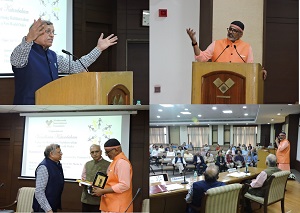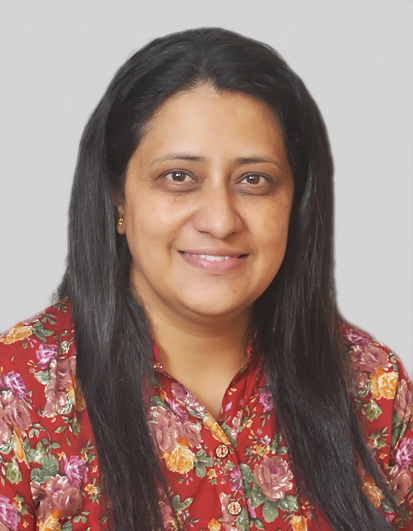In the past few years, the international system has increasingly displayed tendencies of being subordinate to narrow national interests. The COVID pandemic revealed the limits of cooperation when countries turned inwards to cope with the deadly virus rather than help each other in dealing with the fallout. Simultaneously, the war in Ukraine has dealt a severe blow to the UN-led system of collective security. Multilateralism in different arenas has witnessed intransigent impasses. In the realm of peace and security, the reform and expansion of the United Nations Security Council has been an unending saga of negotiations. The discussions on building a nuclear weapons free world always become secondary to immediate security interests of nuclear weapons states. The international community recognizes the perils of terrorism, yet fails to adopt the Comprehensive Convention on International Terrorism that will make state sponsorship of terrorism illegal. In the sphere of climate change, there is recognition of the principle of common but differentiated responsibilities but there has been no agreement on accountability for historically high levels of emissions that have produced devastating effects. In the realm of political economy, international financial institutions such as the IMF and the World Bank continue to represent the developed countries and fall short in appreciating the predicaments of the developing countries.
The need of the hour is a new world order that can be brought about through a reform of multilateralism. To deliberate on this subject the VIF organised a symposium on Vasudhaiva Kutumbakam: Values for Reforming Multilateralism and creating a New World Order on 16 March 2023. The symposium was aimed at highlighting the challenges associated with reforming multilateralism arising out of lack of commitment to values such as that of Vasudhaiva Kutumbakam, that are embedded in the Indic culture. It sought to highlight values that must be adopted by the international community in order to reform multilateralism and thereby usher in a new world order.
Inaugurating the programme, Director VIF, Dr. Arvind Gupta said that the theme of the symposium was chosen to take forward VIFs project on building an Indian narrative on international relations. Through the G20s overarching theme of Vasudhaiva Kutumbakam (VK), one Indian narrative is getting some global attention. The geopolitics of today is devoid of values and the big question that is whether values are relevant for international relations today.
In the inaugural session, delivering his opening remarks, Chairman VIF, Shri S Gurumurthy said there is a need to connect the ancient idea of VK to the contemporary world. The world today has run out of all ideas. No one knows what the future is going to be. The world order is in tatters. In this compelling background, we need to ponder if we can contribute something to the new world order because India now has the stature based on its inclusiveness and diversity to present a way and view of life. The concept of VK means all things of the earth are interrelated; that humans are part of nature; that the world is eco-centric not anthropocentric and that God permeates every atom. VK is not just a philosophy, but a functioning reality, a basis on which India lives. This is reflected in India’s food habits, the culture of living together, the way it nurtures its biodiversity and the way it prioritises duties. So India can pontificate on VK.
The keynote address was delivered by Swami Mitrananda, Director National Projects, All India Chinmaya Yuva Kendra (AICHYK), Chennai. In his address Swamiji dwelt at length on the philosophy of VK. He explained that while the dictum of VK encompasses the idea of advaita, i.e. ‘oneness’ and is for the large hearted, seeing the world in divisions is petty minded. VK is the ‘pure consciousness’ that wraps everything. The creator and created are both divine. Humans are the custodians or trustees of the entire universe because they have the intellect. By and large humans have behaved like exploiters, we have tried to conquer nature. Rather, the Indian ethos is to treat the earth like the mother; and mother teaches all the values of patience, tolerance and accommodation. VK is not a statement of glory or morals, it’s a statement of fact. We need to live with the idea of yagya, i.e. give more than we take. Duties and responsibilities must take precedenceand that will automatically ensure the preservation of rights. He proposed several initiatives to make VK a popular concept through our education system, ecological conversations, dialogues on ethics or dharma, engaging with mainstream entertainment and media, promoting principled economicsor business with ethics, bringing together the ‘revered earth’ or indigenous traditions from around the world, involving sportspersons to demonstrate the spirit of VK.
Session I of the symposium consisted of presentations by three eminent speakers who gave a philosophical, diplomatic and cultural perspective on Vasudhaiva Kutumbakam.
Speaking from a philosophical perspective, Prof SR Bhatt, former Chairman of the Indian Council for Philosophical Research, said that VK and many other precepts in the Indian culture are very emancipating and elevating. VK is premised on udaarcharita or large heartedness; a mindset which needs to be cultivated. It also prioritises duties over rights and the need to help others before helping ourselves. It speaks of the interdependence of the part and the whole. VK is not abstract spiritualism, it is about care for all and share with all. There are other precepts which speak about sahaastitva- togetherness in existence, sahakarya – togetherness in work and sahabhog – togetherness in consuming/using and are equally powerful as philosophies that can guide human action. He concluded by pointing out that in the realm of international relations, it is not easy to live by these values. For instance, many of these principles were enshrined in the dictum of panchasheel or the five principles of peaceful coexistence that were agreed to by India and China; yet India faced the Chinese aggression.
Ambassador Shashank, former Foreign Secretary, stated that in his diplomatic experience, in different parts of the world people want to hear what India has to say about many aspects of life. Some time ago, the overwhelming wisdom imparted to the whole world was that India learnt everything from Britishers, and had nothing to offer to the world. Other cultures were regarded as superior to the Indian culture and civilization. Also, it was felt that India misused what they had learnt from the British to overthrow the colonial rule. The Africans were told by Europeans that they had an ideal society and eastern countries, like India, had nothing to offer. Only some westerners acknowledged that Indians had contributed to understanding cosmology much before the others had and that they, along with the Jewish community made best technologies come up. In East Asian countries, they felt that in India, there was a tussle between western capitalism and soviet communism and nothing of our own vintage. They wanted to know and learn something ‘Indian’ as they had in their past. They even sought technologies. The Chinese felt that they had much to learn from India, but have been disappointed that India speaks the language of the west. Similarly, in South Korea and Japan. So, at the present juncture, India must say what it wants to say through the G20, spell out the aspirations of our own people and of the Global South.
Shri Kumar Tuhin, DG, Indian Council for Cultural Relations, spoke of how the Indian culture is being spread to other parts of the world. In ICCR, India is projected to the world with all its values and culture. At the same time, India’s interests are also secured. He said that VK contains our basic values and civilisational essence like two other dictums, satyamevjayate – only the truth wins and sarvebhavantusukhinah – let everyone be happy. But good values will only be heard and adhered to if they are backed by power and valour. VK shows the path, but one needs to act based on the situation we find ourselves in.
In his closing remarks, Director VIF, Dr. Arvind Gupta, pointed to yet another Indian precept, that of dharma and its usefulness in international relations. Citing Amitabh Mattoo, he said dharma which stands for upholding righteous interest and action as opposed to passivity is another idea that needs to be made central to international relations. He said it is important for us to engage with the academic community outside the country and make a lasting impression on them intellectually.
The discussion that followed focussed on the importance and uniqueness of many values that are inherent in our civilisation. In this context, communicating our ideas to the wide world becomes very important. It was reiterated that narratives are very important, and it is important that our narratives are shared with the world, in a manner that they appeal to their sensibilities. It is also important to create effective counter-narrative to challenge dominant narratives.





Post new comment